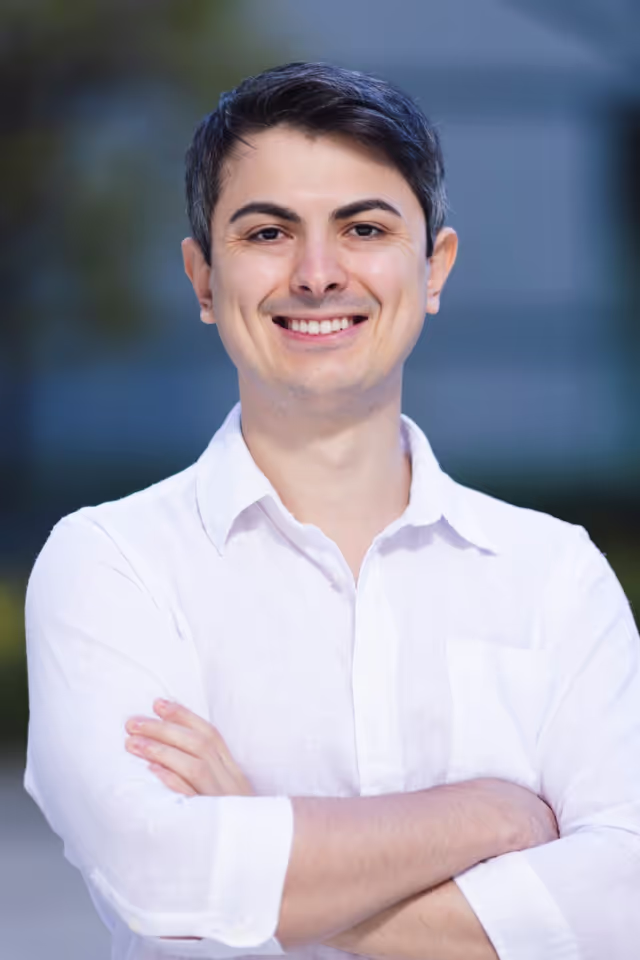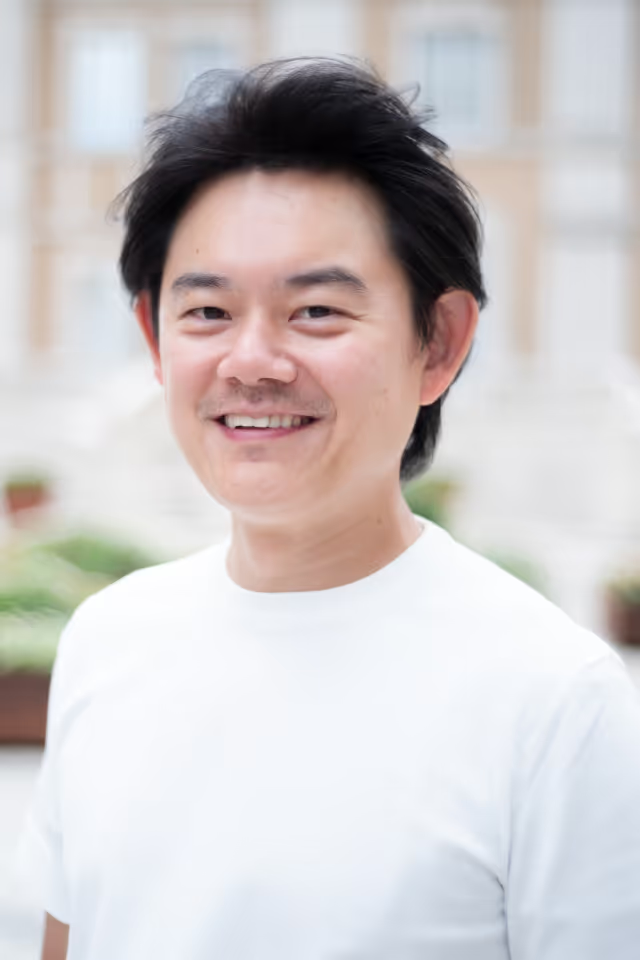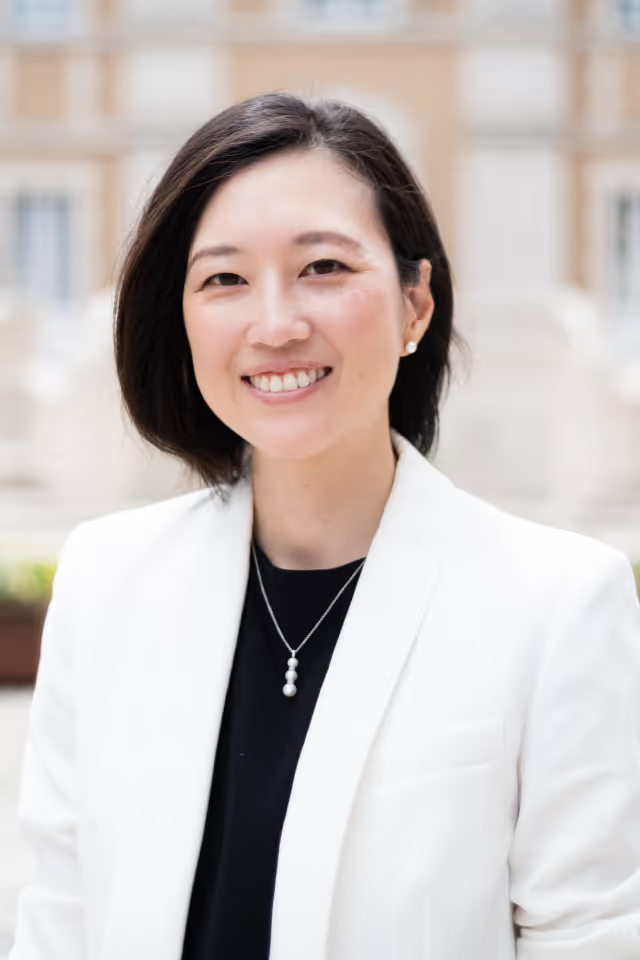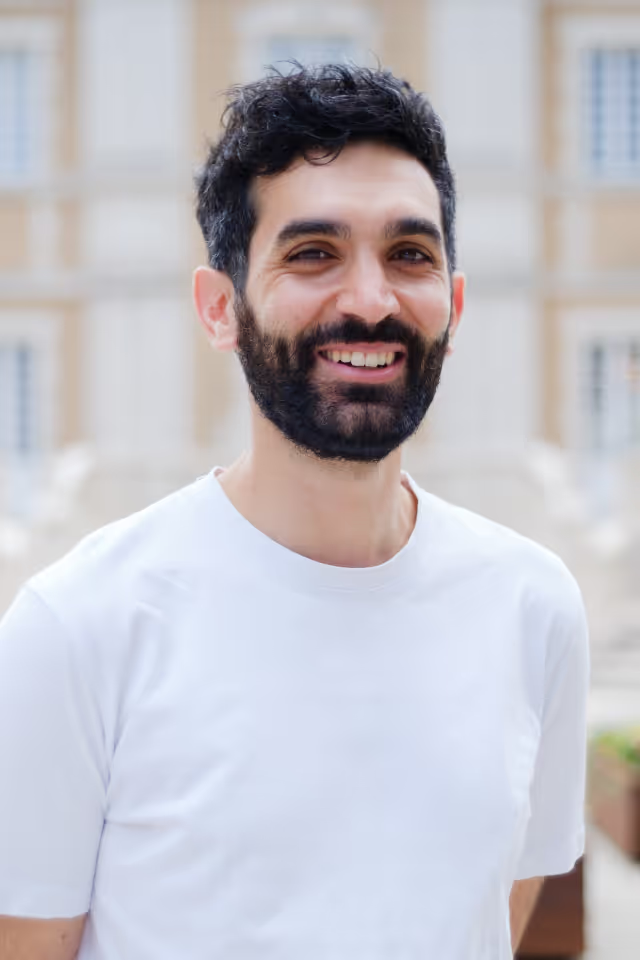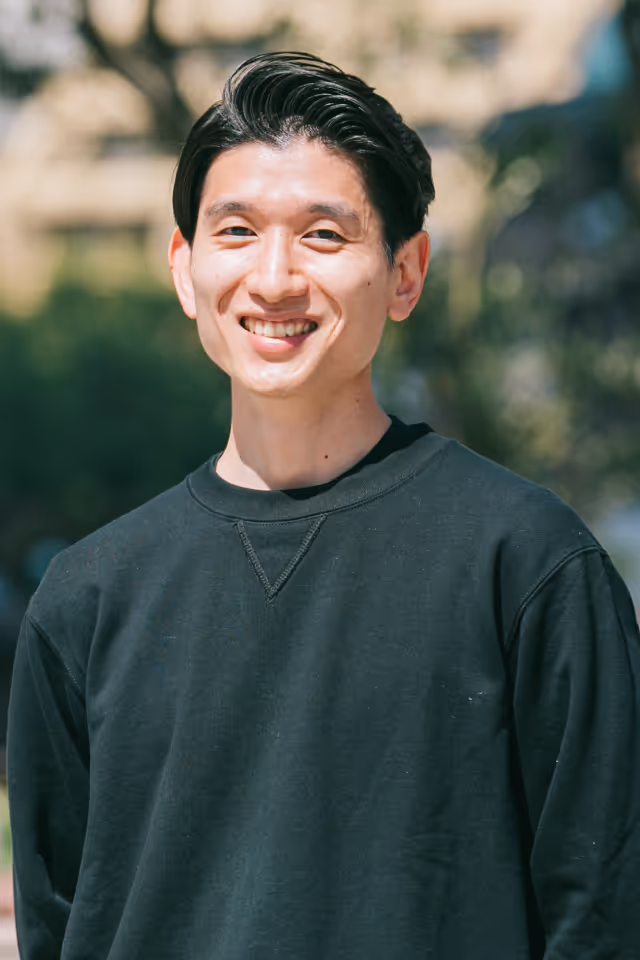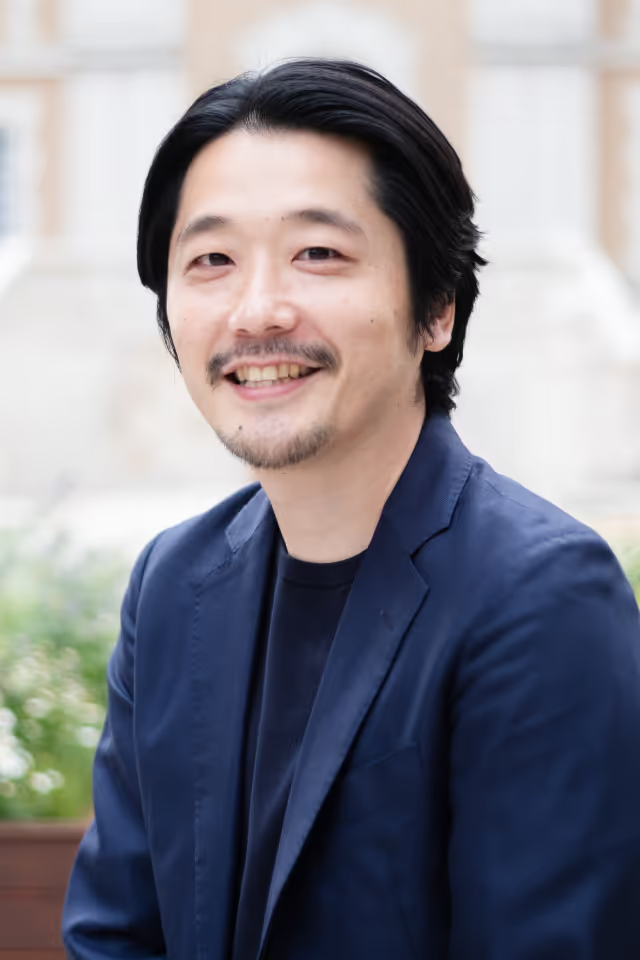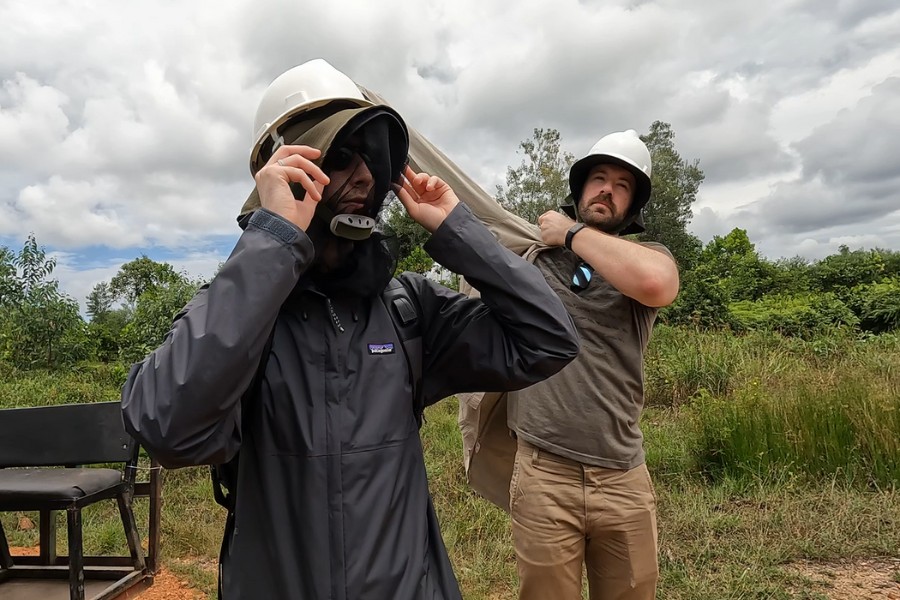
In late February and early March of 2024, a team from Recursive embarked on a significant business trip to Indonesia. The primary objective was to enhance their AI model designed to predict future Ground Water Levels (GWL) in the tropical peatlands of West Kalimantan. This initiative aims to prevent forest fires, anticipate floods, and ensure the growth of plants. The team, consisting of Quentin Siutkowski, Dmitry Lyamzin, and David Landup, had been working on the GWL project for over two years and faced numerous challenges that required on-site observations and experiments to resolve. Discover their insights and passion from this through an interview!
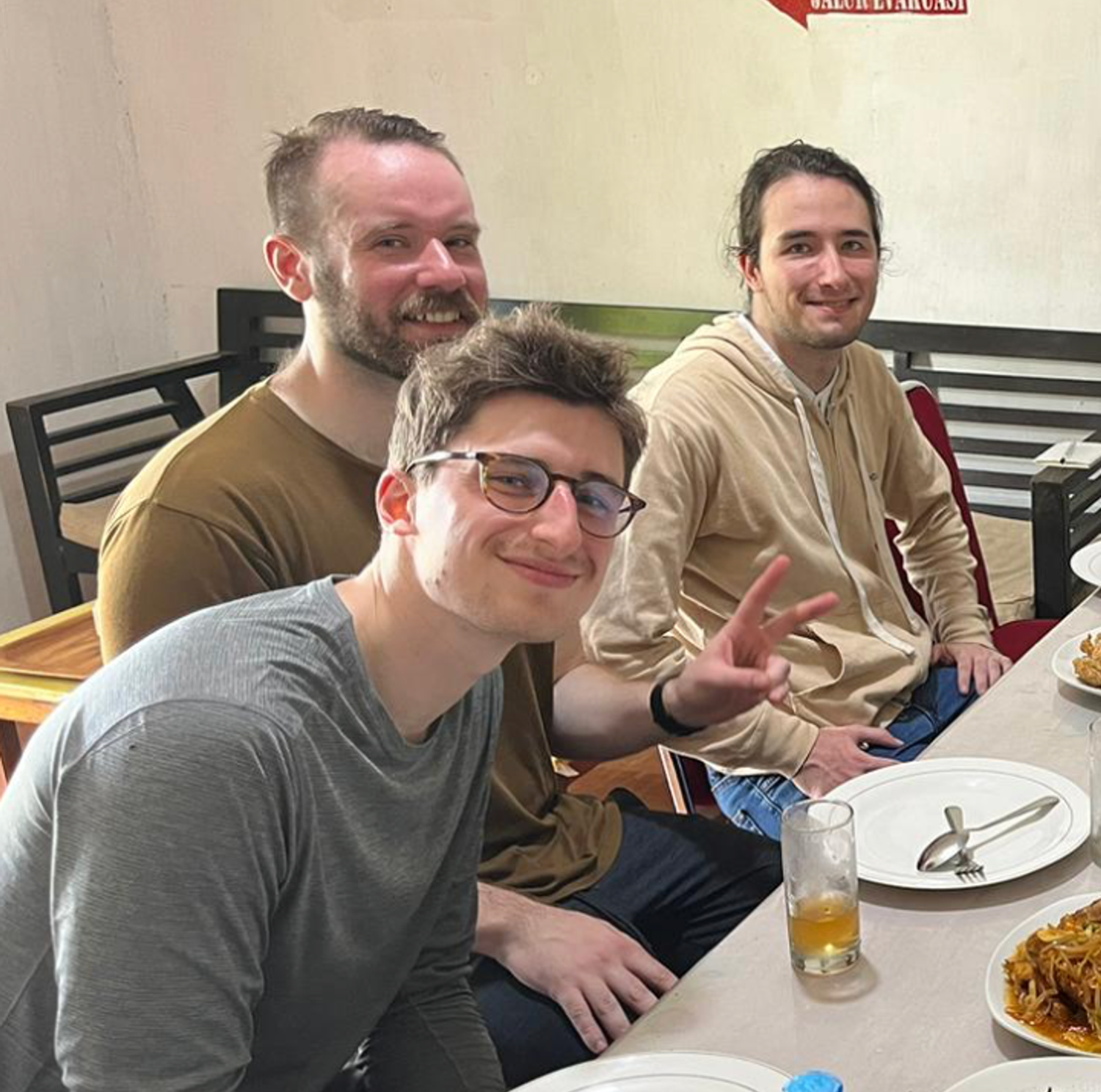
Borealis is an AI model as one of Recursive’s 4 Technology Platforms, using advanced physics-based modeling and AI to improve environmental management. It helps with reforestation, carbon storage, water resource preservation, and minimizing fires and ecosystem degradation. Borealis integrates large-scale climate and geological data, hybrid environment simulation, satellite data, and ground observations to support sustainability use cases like water level management, fire hazard mapping, renewable energy forecasting, and power demand forecasting. Here the project focuses on groundwater levels.
Dmitry: It was very exciting! We finally got to see where the data comes from. Riding a speedboat for three hours into the jungle and then arriving to find chickens everywhere was surreal. It was a unique experience that helped us understand their daily challenges and the life they live. Being there allowed us to develop personal connections with them, which brought a lot of motivation.
Quentin: People who work on the site live there, so it's an isolated area with everything needed to sustain themselves. It was different from just seeing images and data, we could play volleyball, eat, and talk with the local team, which was very motivating.
David: There were always be question marks about the things we've done, the assumptions we've made, and not just resolving those questions, but finally seeing what we spent so much time trying to understand in real life was a surreal feeling. I remember sending messages to some of our colleagues who also worked on the project beforehand saying “This is the thing we couldn’t figure out a year ago!”. So finally being able to see those in real life was a pretty surreal feeling.
Dmitry: We definitely learned a lot about the irrigation system they use there! We will use this knowledge in future model developments. We finished a certain phase and delivered a product before we went, so we haven’t fully used the acquired knowledge just yet, but we will in the future.
David: We had multiple discussions with people there, both up and down the chain of management, and received good feedback on what we did as well as potential areas for improvement. The dynamics of the area are complex, making it difficult to model and understand what's happening. However, we gained valuable insights into the daily problems people face and what could be resolved by our technology. Overall, it was a gratifying experience.
Quentin: Communication between the head company and the subsidiary isn't straightforward; it's restricted to specific channels and a few key individuals. Engineers on the ground have certain concerns and ideas that people in Tokyo don't necessarily share. We strive to balance the needs of both the head company and the engineers, which is a challenging task but ultimately benefits everyone involved. Our prior interactions with them established a foundation of trust, evident in the warm reception and welcome we received as guests. They recognized our genuine efforts to improve their lives and work collaboratively, which further deepened the mutual trust between us.
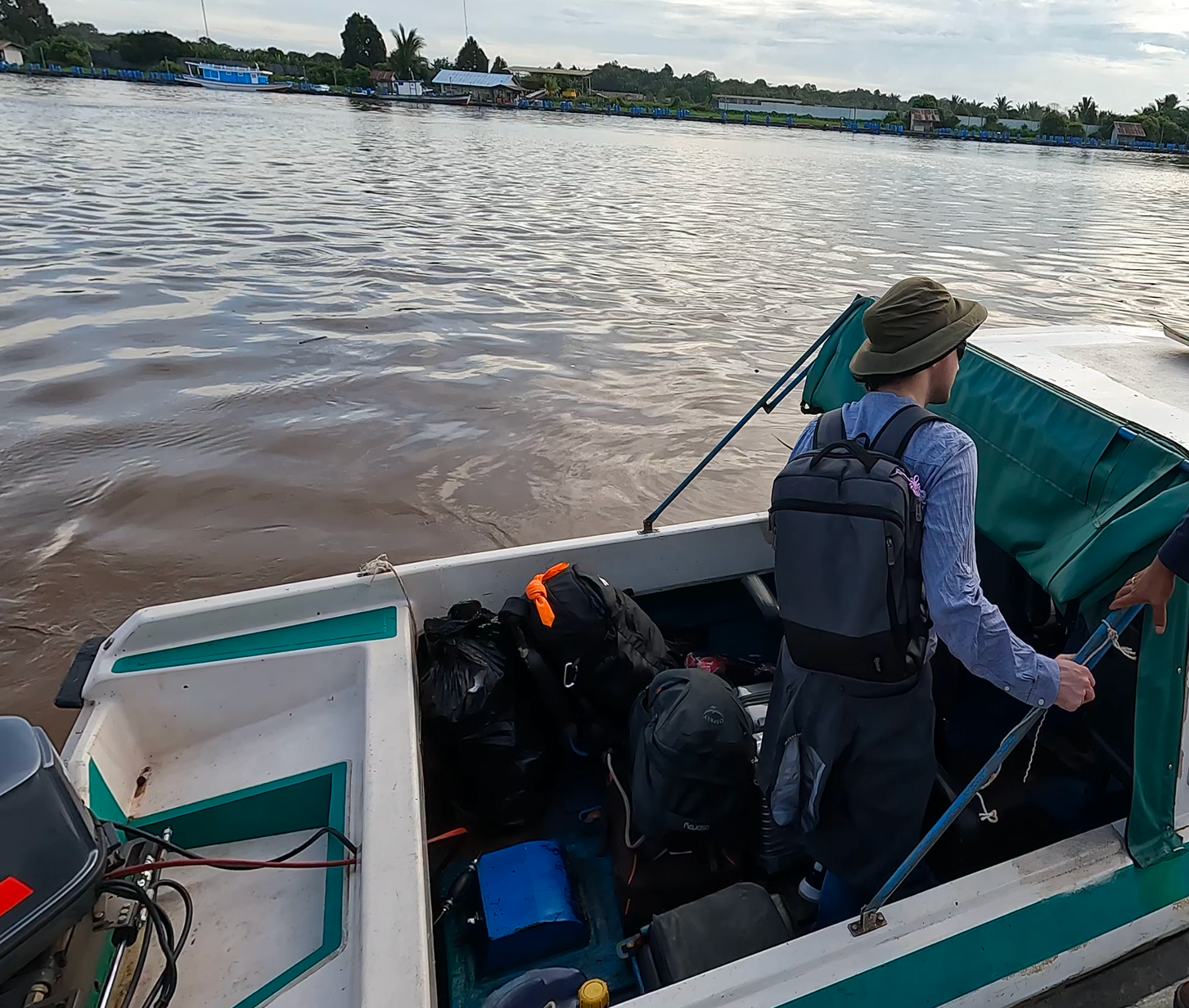
Dmitry: This project is directly related to our values and goals as a company. It's a sustainable operation in the jungle where people genuinely care about their business and its impact on the wider territory. They care about the wildlife and have dedicated personnel responsible for conservation management, which aligns very well with our values.
Quentin: I think it's the flagship project of the company when it comes to sustainability. While we are getting more projects aligned with our values, this one is the bread and butter of the company. The impact extends far beyond just the facilities (physical infrastructure and operational areas that are part of the project), as most of the area consists of conservation zones. They shared videos of orangutans and other endangered species they are protecting. They are putting cameras and sensors to keep track of the populations and ensure they are not disturbing them.
David: Highly aligned, and has the potential to prevent massive carbon-emitting events. Peat has extremely high carbon sink effects, capturing a lot of carbon that gets stored in the soil and also helps massive trees grow into rainforests. This biomass is then used to build housing, essentially converting CO2 from the air into housing for people. Tropical forests and peatlands are particularly good at this, but they require specific weather conditions, making it crucial to maintain the existing ones. For this specific reason, peat is also very flammable and it’s easy to re-release that same captured carbon back into the atmosphere. We're hoping that our work may mitigate fire hazards, such as the 2015 fire that burned 2.6m hectares of forests in Indonesia, causing up to ~1.3B tonnes of CO2 to re-enter the atmosphere, which is higher than the yearly CO2 emissions of many countries. This was a planet-scale event.
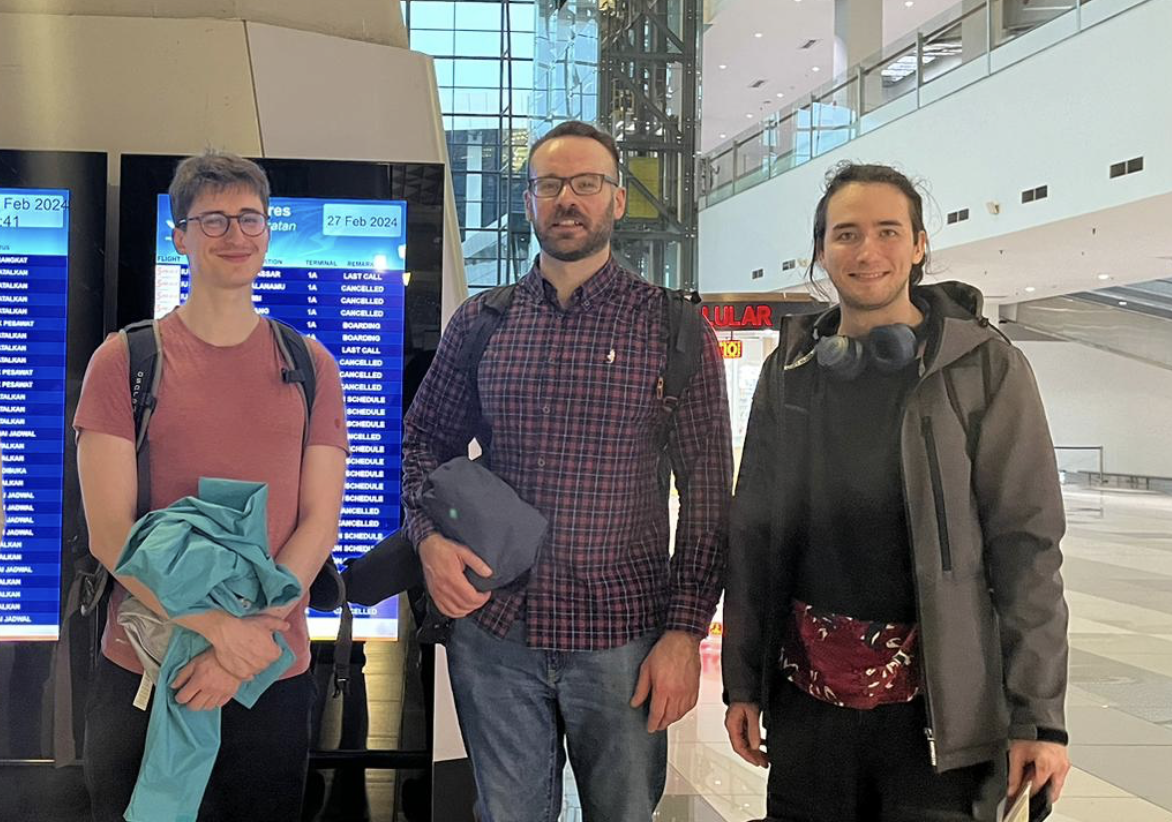
Dmitry: Now that we've completed this project and been there, we have gained more expertise. We could look at growing in the future by taking on a bigger area and more long-term contracts.
Quentin: The Borealis team will expand to support projects similar to this one, and we are also working on other projects, including long-term ones with other companies. Sometimes we see connections between projects, even if they seem far apart on paper. Some are based in Japan, some in Indonesia. The environments are different, but the approach, knowledge, and systems we develop can be reused or adapted. We have many projects related to water, which is a common thread that connects them. We also have many exciting ideas for Borealis.
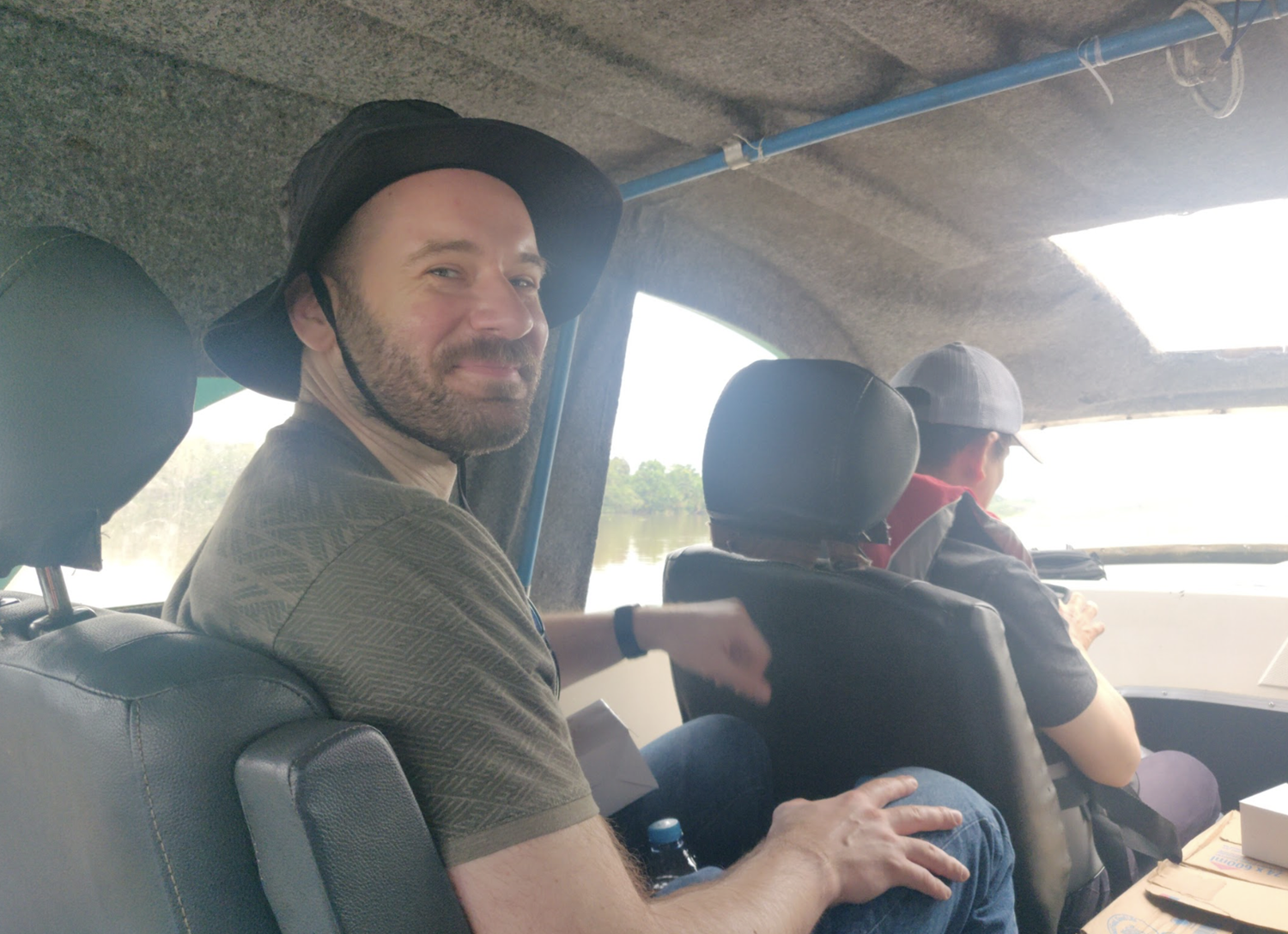
Dmitry: It was a good surprise to see how sophisticated their water operations and canal systems are. They know what they're doing and need minimal intervention. Our approach may not be to tell them what to do daily, but to support them in their activities. They are already doing a lot of good things, but there's still a lot of guessing. We hope to make their guessing more accurate and science-based.
Quentin: We can support them in their daily activities, even though they are already doing well. There are factors like changes in evapotranspiration, and rainfall that affect groundwater, which their system may not fully account for. Our solution can help them. It didn't rain much while we were there, but on the last day, it rained heavily. They said all the work done in the past two days had to be undone because of the rain. We hope to help avoid such situations in the future and make their life easier.
Dmitry: People were very friendly and the homemade food was amazing. Quentin played volleyball with them as well. I didn't because it was too hot. It was just too hot to function.
Quentin: People were very kind and welcoming. It was nice to exchange with them and not feel like outsiders. We created something more than just a visitor relationship. The person we had talked to before was an expert of the area and respected by the people there. It was good to see him in his natural environment and get his support.
David: The atmosphere was filled with smiles, and people seemed genuinely happy. They were incredibly kind and welcoming towards the work we were doing. Although there was a bit of a language barrier since they didn't speak English and we didn't speak Bahasa, we managed to communicate effectively using our hands. It was a wonderful experience, I wish we could have stayed a bit longer to enjoy more of the beauty and the fun environment.
Quentin: We are talking about expanding the project to newer areas and seeing what's possible. It's not decided yet, but the project has huge potential. We are optimistic that we'll do even more and have an even bigger impact.
David: The next step would be to generalize the solution to other areas. There are massive zones this could be used for, both for planning where to create irrigation canals and for long-term analysis and future forecasts.
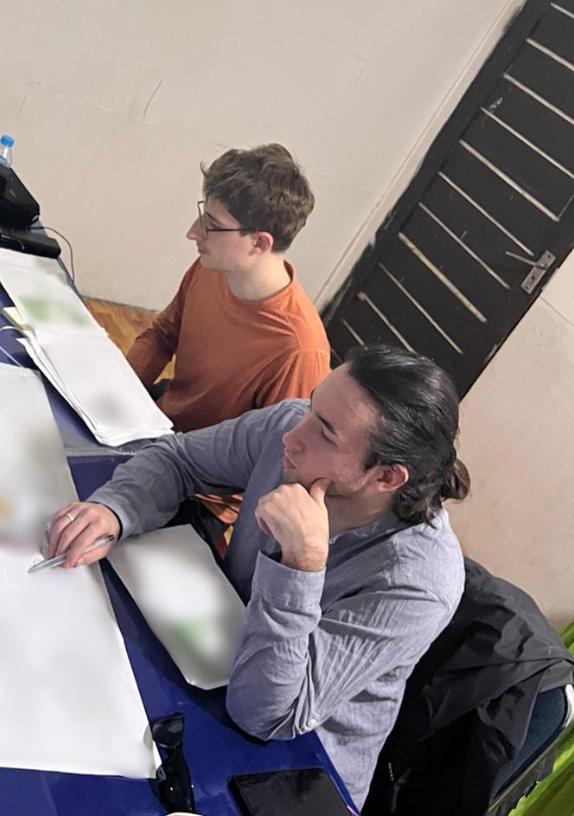
Recursive is a service provider of AI solutions for building a sustainable future. We provide AI system development and consultation services by combining our knowledge of diverse industries such as environment, energy, medical, pharmaceutical, food, and retail with our advanced technological capabilities and expertise in sustainability business. Our unparalleled professionals lead the way in creating a new society with world-class technology in order to leave a better global environment and society for future generations.
Founded by a former senior research engineer at Google DeepMind, Recursive brings together world-class talent from across disciplines to engineer results where others can't.
